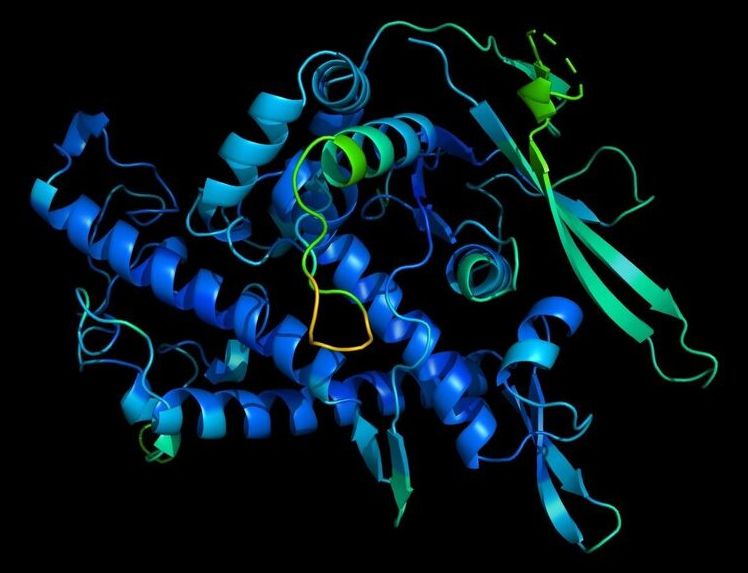Nov 30, 2020
50-year Mystery of Protein Folding Solved by AI
Posted by Future Timeline in categories: biological, robotics/AI
Protein folding, one of the biggest mysteries in biology, has been solved by artificial intelligence company DeepMind.
Protein folding, one of the biggest mysteries in biology, has been solved by artificial intelligence company DeepMind.
On lighter news.
McDonald’s pork McRib sandwich will be available in Colorado and nationwide on Wednesday, Dec. 2, 2020. The sandwich debuted in 1982 and is a fan-favorite item.
More than 100 SARS-CoV-2 infected mink may have escaped from Danish fur farms, raising the risk that these escapees could spread the novel coronavirus to wild animals, creating a new reservoir for the virus, The Guardian reported.
“Every year, a few thousand mink escape,” and this year, an estimated 5 percent of these escaped animals may have been infected with SARS-CoV-2, Sten Mortensen, veterinary research manager at the Danish Veterinary and Food Administration, told The Guardian.
These mink may be spreading the coronavirus to wild animals, even as millions of mink still on farms are being culled to prevent spread of the virus.
The bird, named Falcatakely, had a dinosaur-like facial bone structure, but a modern-looking face.
At 21, Ashwin Sah has produced a body of work that senior mathematicians say is nearly unprecedented for a college student.
Cellular reprogramming can reverse the aging that leads to a decline in the activities and functions of mesenchymal stem/stromal cells (MSCs). This is something that scientists have known for a while. But what they had not figured out is which molecular mechanisms are responsible for this reversal. A study released today in STEM CELLS appears to have solved this mystery. It not only enhances the knowledge of MSC aging and associated diseases, but also provides insight into developing pharmacological strategies to reduce or reverse the aging process.
The research team, made up of scientists at the University of Wisconsin-Madison, relied on cellular reprogramming — a commonly used approach to reverse cell aging — to establish a genetically identical young and old cell model for this study. “While agreeing with previous findings in MSC rejuvenation by cellular reprogramming, our study goes further to provide insight into how reprogrammed MSCs are regulated molecularly to ameliorate the cellular hallmarks of aging,” explained lead investigator, Wan-Ju Li, Ph.D., a faculty member in the Department of Orthopedics and Rehabilitation and the Department of Biomedical Engineering.

Welcome back to our series on Martian colonization! In Part I, we looked at the challenges and benefits of colonization. In Part II, we looked at what it would take to transport people to and from Mars. In Part III, we looked at how people could live there. Today, we will address the question of how people could establish an industrial base there.
If we intend to “go interplanetary” and establish a colony on Mars, we need to know how to address the long-term needs of the colonists. In addition to shelter, air, water, food security, and radiation shielding, the people will need to create an economy of sorts. The question is, what kind of industry would Mars support?
Continue reading “Making the First Martians: Building an Economy on Mars” »

A 50-year-old science problem has been solved and could allow for dramatic changes in the fight against diseases, researchers say.
For years, scientists have been struggling with the problem of “protein folding” – mapping the three-dimensional shapes of the proteins that are responsible for diseases from cancer to Covid-19.
Continue reading “AI solves 50-year-old science problem in ‘stunning advance’” »
Researchers at the University of Basel have discovered a molecular mechanism that plays a central role in intact long-term memory. This mechanism is also involved in physiological memory loss in old age.
Many life forms, from worms to humans, have differentiated memory functions, such as short-term and long-term memory. Interestingly, at the cell and molecule level, many of these functions are nearly identical from life form to life form. Detecting the molecules involved in memory processes is of great importance to both basic and clinical research, since it can point the way to the development of drugs for memory disorders.
By studying roundworms (Caenorhabditis elegans), scientists at the Transfaculty Research Platform for Molecular and Cognitive Neurosciences (MCN) at the University of Basel have now discovered a molecular mechanism of long-term memory that is also involved in memory loss in old age. They report on their findings in the journal Current Biology.
Kewl… ~~~ “Led by Associate Professor Alfredo Franco-Obregón from the NUS Institute for Health Innovation and Technology (iHealthtech), the team found that a protein known as TRPC1 responds to weak oscillating magnetic fields. Such a response is normally activated when the body exercises. This responsiveness to magnets could be used to stimulate muscle recovery, which could improve the life quality for patients with impaired mobility, in an increasingly aging society.”
As people age, they progressively lose muscle mass and strength, and this can lead to frailty and other age-related diseases. As the causes for the decline remain largely unknown, promoting muscle health is an area of great research interest. A recent study led by the researchers from NUS has shown how a molecule found in muscles responds to weak magnetic fields to promote muscle health.
Led by Associate Professor Alfredo Franco-Obregón from the NUS Institute for Health Innovation and Technology (iHealthtech), the team found that a protein known as TRPC1 responds to weak oscillating magnetic fields. Such a response is normally activated when the body exercises. This responsiveness to magnets could be used to stimulate muscle recovery, which could improve the life quality for patients with impaired mobility, in an increasingly aging society.
Continue reading “Molecule that promotes muscle health when magnetised” »
